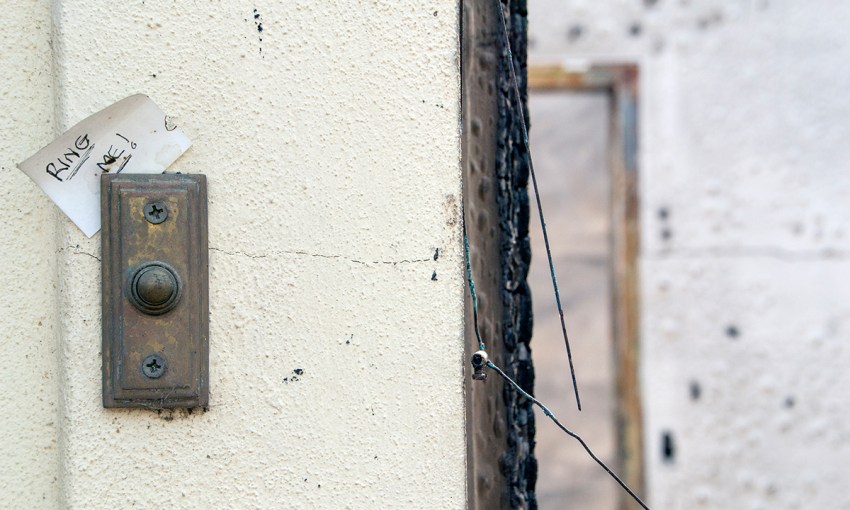More than a year on from the devastating Cudlee Creek bushfire, many fire-affected families are still waiting to rebuild their homes, and their lives.
“Ring Me”
A bit after 9am on Friday, December 20, 2019, a tree fell on a power line on Hollands Creek Road in Cudlee Creek. On a normal day, the Country Fire Service would clear this with few disruptions. However, on that day, temperatures were over 40C and the extraordinarily strong, erratic winds snatched a lick of flame from the powerline and the cross-country race began.
The fire rolled out over the landscape, devouring the plentiful long dry grass, arid undergrowth and parched bushland. It sprinted across paddocks, building up speed and momentum.
By 11.55am, it was at Nicole and Brent McIntosh’s back door in Lobethal.
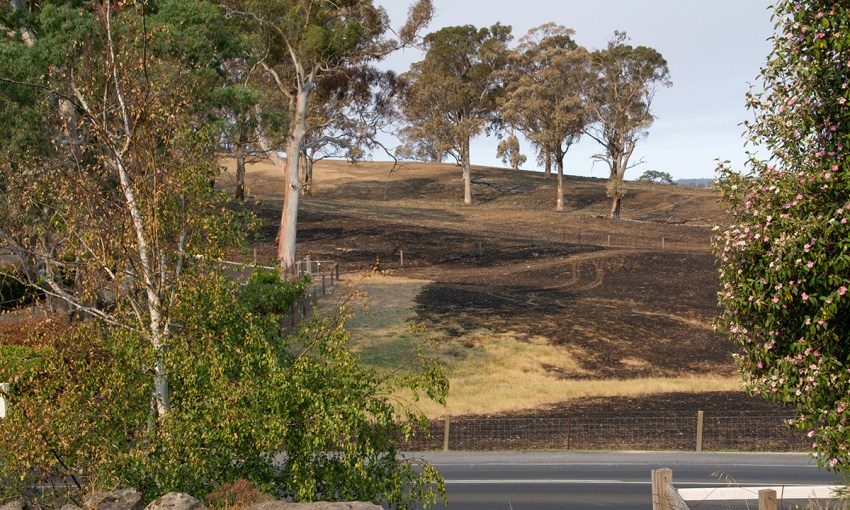
The Cudlee Creek fire, as it was by then known, roared down the hill behind their house on the outskirts of Lobethal. It coalesced with other fiery limbs and entered a neighbour’s property first, savouring the native trees, dry bushes, garden shed and baked grass. Hungry for more, the fire sent flames ahead, marching along the neighbour’s row of blue and white agapanthus before sneaking through the fence into the McIntoshes’ granny flat and pergola, right up to the house.
Brent had stayed home, planning to defend their property, but he was forced to leave when things went awry.
“The hoses were ready, but when I turned the tap on there was no water pressure,” he says.
“And there was a wall of fire advancing over the ridge. It was too late to do anything save for grabbing the pets and skedaddling.”
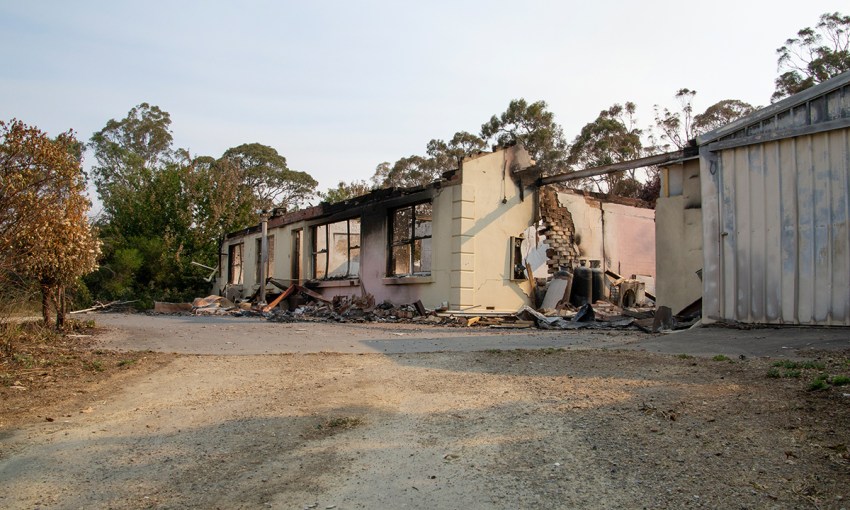
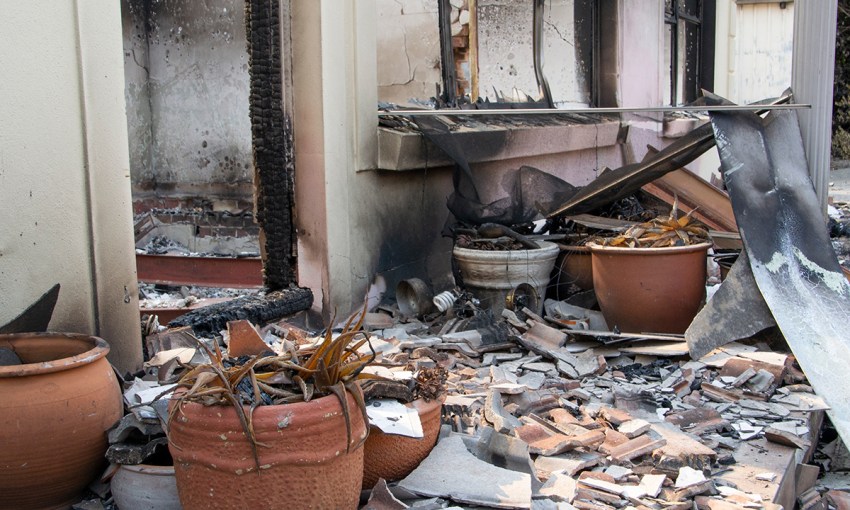
While their home burned in Lobethal on that fateful Friday, the family were at their business, The Olive Branch Cafe, 12 kilometres away in Balhannah. The news trickled in through the day but the Nicole and Brent kept their cafe open; they kept working.
They heard that their house had become the go-to “house-on-fire” vision in the media; the signature image of a disaster unfolding five days before Christmas in the Adelaide Hills. The family knew people would need somewhere to go and something to do during this disaster.
They needed something to do. As people piled into the cafe, Nicole cooked and joked that the only clothes she had left were covered in cookie dough and bread flour.
Days later, there was a stench of stale smoke and sodden timber hanging over the skeletal remains of their ruined home. The smoke haze from fires still raging on Kangaroo Island cast a ghostly glow in the air.
The door frame sagged in the middle, barely clinging to the flaky gyprock walls either side. The doorbell was still intact on the outside wall and wedged into it was a faded Post-It Note with the words “Ring Me” written on it. Brent put it there months earlier to alert delivery people, and other would-be heavy-handed door knockers, of the doorbell’s existence.
That Post-It Note had survived months of weather through spring – and now a bushfire.

The doorknob rested precariously on a charred remnant of the doorstep. Just inside the doorway was a steel floor girder. It had bent under the strain of intense heat and straddled the floor, lying over a hefty mixture of bricks, rubble and broken roof tiles. All that remained of the family’s home and possessions was charred bricks, melted carpet, charcoaled furniture and ash. By January 2020, the scar created by the fire was reported as 25,000 hectares with an 88-kilometre perimeter. Almost 500 buildings including 85 homes had been lost, more than 2000 firefighters had worked long hours with 433 aircraft drops totalling almost 1,267,600 litres of liquid. Thousands of people, livestock, horses and pets had been displaced, livelihoods were gone and one life had been lost.
Yet a solitary Post-It Note, tucked behind the doorbell of a burned house, survived.
Somehow it had been protected by the front portico, the brick walls, the doorbell, wind direction and the fuel load within the house, in just the right spot.
Twelve months later, many have forgotten the fires in the wake of the COVID-19 pandemic. Except those, such as the McIntosh family, who still don’t have a home. They have a ringing doorbell on a small rented house in a neighbouring town, but it hasn’t been an easy year. With the loss of their home and all their possessions came the bureaucracy and burden of the label “bushfire victim”. Besides this, their sole source of income has been a cafe — in a pandemic. Their daughter Ella is in Year 12 and their son Lachlan at university, and they have their wellbeing to balance daily.
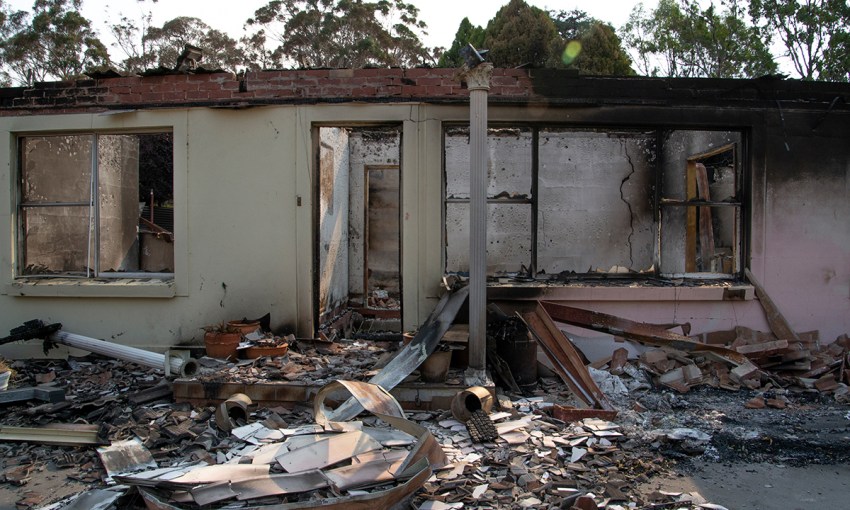
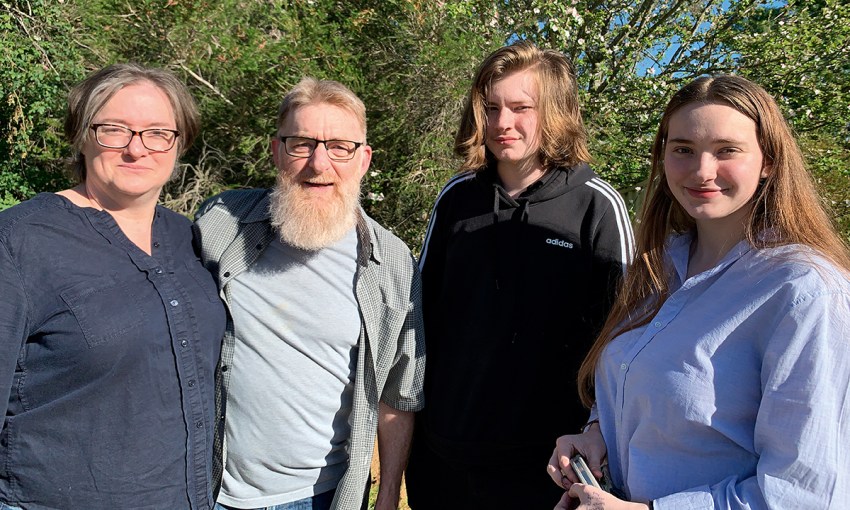
“We’re finally moving forward with the house,” Nicole says. “We selected all of the tiles, taps, paint, cupboards … it’s starting to feel real.
“We certainly sound very together. Sadly, that’s far from the truth and the reality for many fire-affected families.”
The family are working with their community now more than ever through The Olive Branch Cafe — cooking, caring, and connecting those in need with those who can help. They make soup for care packages, run collections for charities, host open mic nights for emerging artists and craft classes for kids.
However, the brave-face, front-of-house facade hides the resilience required for the day-to-day functioning of people who have lost so much, and still have so much to do.
This story first appeared in the Dec 2020/Jan 2021 issue of SALIFE magazine.



